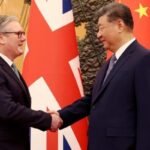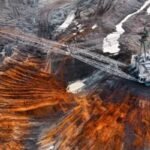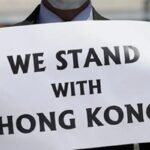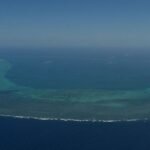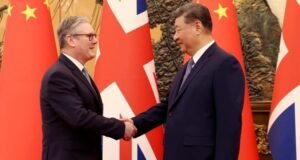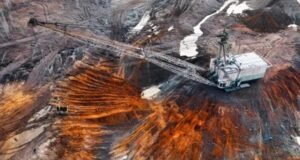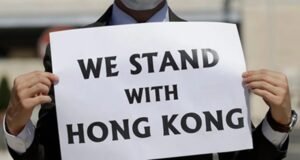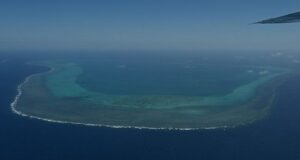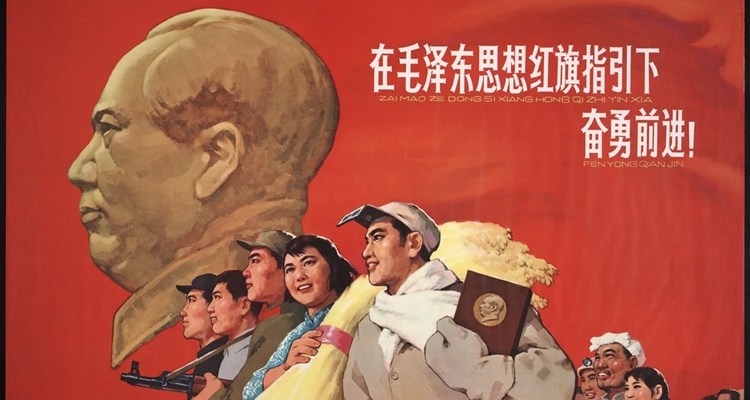
One can’t answer with a blanket Yes or No, since many different people and situations may be involved. The question came up recently in part because of a post on another site suggesting that under Mao’s regime (1949-1976), China was responsible for many deliberate murders and also many “unintentional” deaths by starvation.
Great Leap Backward
The Great Leap Forward (1958-1962) was a big push by China’s dictator to rapidly institute the communist paradise on earth by way of frenetic gains in mass-scale production. In the early days of this period, perhaps some cadres had no idea that destroying independent farming and forcing everybody to participate in blundering state-directed projects would cause anybody to starve to death.
I don’t know that this is so. But let’s stipulate it, that at least some of the people following orders to destroy livelihoods didn’t expect that doing so would also destroy lives.
If there was any such innocence, it could not last. The consequences of Mao’s policies soon became inescapable. But as the dates above memorialize, the Great Leap Forward was not summarily ended.
Eager to appease their bosses, local “planners” produced fake statistics—i.e., lies—about all the production quotas being met as villagers were forced to melt down farming implements and set up useless smelting furnaces in their backyards. CCP bosses sometimes pretended to believe the statistics, as did Mao. But Mao knew that many people were dying not only because they were being executed but also because they were being starved. A certain amount of mass death was acceptable for the sake of communist progress, he and many of his subordinates felt.
Mao received numerous reports about hunger, disease and abuse from every corner of the country….
By the end of 1958 Mao did make a few gestures to appease concern about widespread abuse on the ground. In the comments he circulated about the Luliang report [about thousands of deaths in Luliang], he accepted that the living conditions of villagers had been neglected at the expense of increased output. But to him Luliang was merely a ‘lesson’ that somehow magically ‘immunised’ the rest of the country against similar mistakes. In the case of Xushui, Mao simply switched his allegiance to the next county down the road willing to outdo others in extravagant production claims….
Mao did slow down the pace of the Great Leap Forward between November 1958 and June 1959, but he was unwavering in his pursuit of utopia. The Great Leap Forward was a military campaign fought for a communist paradise in which future plenty for all would largely compensate for the present suffering of a few….
As foreign minister Chen Yi put it in November 1958, addressing some of the human tragedies on the ground, ‘casualties have indeed appeared among workers, but it is not enough to stop us in our tracks. This is a price we have to pay, it’s nothing to be afraid of. Who knows how many people have been sacrificed on the battlefields and in the prisons [for the revolutionary cause]? Now we have a few cases of illness and death: it’s nothing!’
This excerpt is from Frank Dikötter’s 2010 book Mao’s Great Famine: The History of China’s Most Devastating Catastrophe, 1958-1962.
The Sierra Madre
The question of “unintentional” CCP-inflicted starvation also came up because of a recent headline noting that “China complains Philippines sent supplies to warship at disputed atoll” (Reuters, April 9, 2025).
“China’s coast guard said on Thursday it ‘had allowed’ a Philippine civilian vessel to deliver provisions to a warship ‘illegally grounded’ at the Second Thomas Shoal, a disputed atoll in the South China Sea.” The Philippine warship grounded there to establish a makeshift Philippine outpost is the BRP Sierra Madre.
Regarding the headline, StoptheCCP.org publisher Paul Jacob asks: “Isn’t this sort of like saying ‘China complains Philippine soldiers still alive’ ”?
Yes, it sort of is.
Suppose China prevents further resupply of the Sierra Madre but the Philippine soldiers continue to man their post. If the China Coast Guard were also to prevent them from fishing or otherwise sustaining themselves, the Filipinos would die of thirst or hunger. And nobody could pretend that this were an unintended accident and not a foreseeable consequence of preventing the resupply of Philippine soldiers in Philippine territory.
At the moment, the actions of the Chinese government fall short of such acts of war. We’re still in what students of CCP provocations call the gray zone. But China’s assertions imply that it would be justified in causing the deaths of peaceable Filipinos “illegally” situated in Philippine waters.
Also see:
History Workshop: “Evidence of Mao’s Hidden Famine, Inside China’s State Archives”
The Guardian: “Why the rusting wreck of a second world war ship is so important to China”
